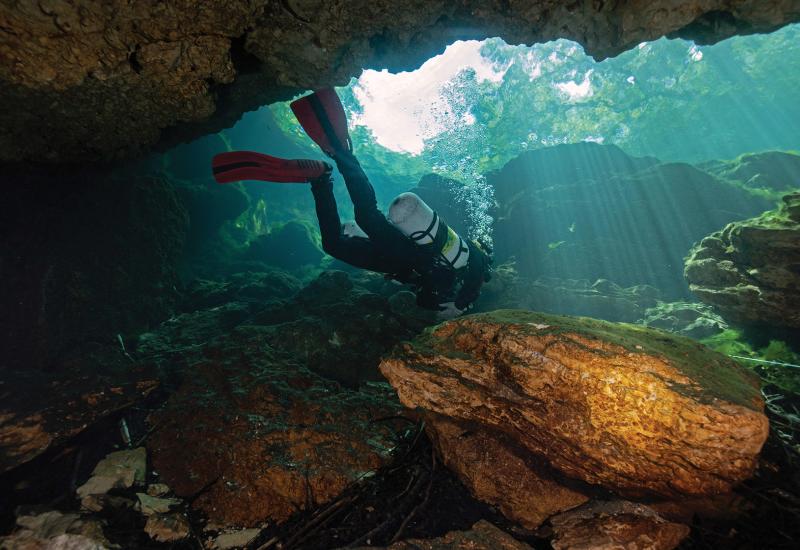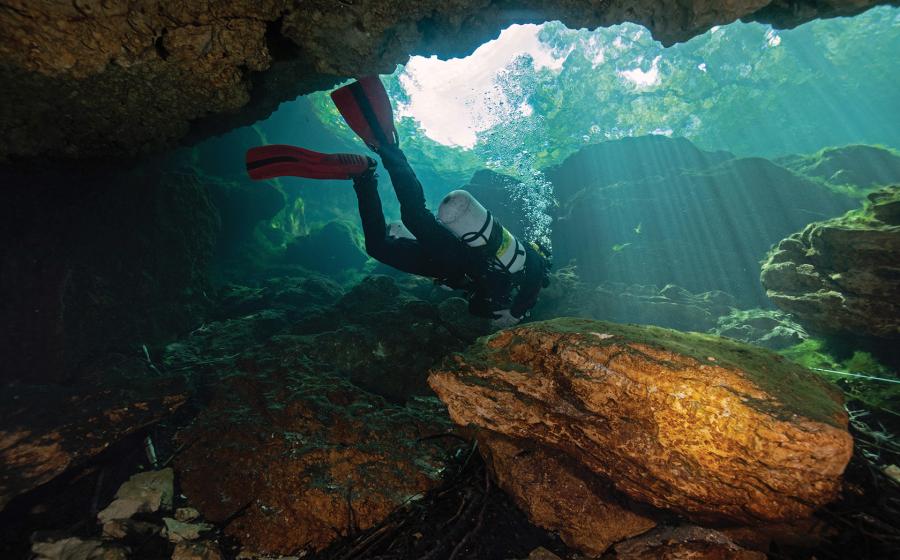How to Decide if You Need Shots or Vaccinations Before Traveling Abroad

Thomas BurnsMake sure you're up-to-date on your vaccinations before leaving for a trip.
You’ve just booked the flights for your dream dive vacation. Your passport is current, your gear is in tip-top shape and your bags are packed. But are you totally prepared? When your travel takes you to far-flung places, taking the right preventive measures — including vaccinations against disease — can ensure you don’t end up in a doctor’s office, medical clinic or hospital. Here are our best tips for helping you minimize the risk for contracting diseases.
1. CHECK YOUR VACCINE RECORD
First, make sure you’ve received all the standard childhood and adult vaccines for diseases such as chicken pox and measles, mumps and rubella. Most people are vaccinated for these when they are younger, but you might need a booster shot. It’s especially important to make sure you’re up-to-date before you travel because these diseases might be more prevalent abroad than they are in the United States.
2. RESEARCH YOUR DESTINATION
When planning a trip, head to the Centers for Disease Control website (cdc.gov) and look up the country you plan to visit. The site includes a breakdown of medical advice according to destination, including whether the country requires any shots, such as yellow fever or meningococcal vaccines, recommendations regarding shots for diseases such as rabies and meningitis, and information about malaria in the region.
3. TALK TO YOUR DOCTOR
At least a month before your trip, make an appointment with either your primary-care doctor or a travel-health specialist. Try to find a doctor who specializes in dive medicine. The CDC’s recommendations are generalized by country, but your doctor can help you decide what to do based on your specific travel plans. That’s because vaccinepreventable diseases or malaria might be an issue only in certain parts of the country, and you might not need them at all if you plan to spend most of your time at a resort or on a dive boat.
4. PLAN AHEAD
It’s important to figure out which vaccines and preventive medications you’ll need for your trip at least a month before you go because some vaccinations need time to take effect and others require more than one dose.
5. CONSIDER NON-VACCINEPREVENTABLE DISEASES
Dengue fever is one of the most common, and rising, diseases found throughout popular dive destinations like the Caribbean, Central America, Southeast Asia and some Pacific islands — even Puerto Rico and Florida have seen cases. And it can be deadly, so it’s important to treat it seriously. Like malaria, dengue fever is spread by mosquitoes, but unlike malaria, there are no preventive medications. That means the most important preventive treatments for any dive trip might be bug spray with a high percentage of DEET and long clothes treated with permethrin to wear in the evenings, when the bugs come out.
6. FINDING A DOCTOR ABROAD
Even when you take all the precautions, it sometimes becomes necessary to seek medical care. You can contact the nearest U.S. embassy or consulate, hotel doctors or even credit-card companies. Be advised that healthcare providers in foreign countries will sometimes require payment in cash or with a credit card. With DAN’s dive insurance, you’ll also have access to 24-hour, multilingual nondiving medical information and assistance, including physician referrals.










